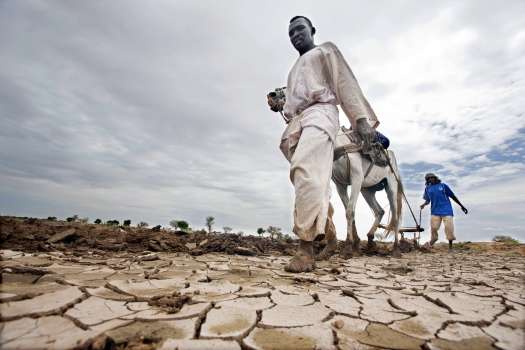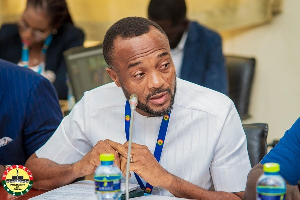The 28th United Nations Climate Change Conference (COP28) recently concluded, and emphasized the urgent need for climate adaptation and resilience, especially in developing regions like West Africa.
This year’s conference placed a strong focus on the necessity of adaptation financing and support, recognizing the critical role of bolstering resilience in developing countries. The outcomes underscored the importance of technology transfer, capacity-building initiatives, and nature-based solutions, highlighting the imperative to secure funds for climate action in these regions.
“Africa and its people face an urgent need to adapt to the impacts of climate change, given the continent’s vulnerability to its effects. Despite being the least responsible for the historical greenhouse gas (GHG) emissions, Africa bears a disproportionate burden of its impacts. Changing weather patterns, increased frequency of extreme weather events, and rising temperatures pose significant challenges to agriculture, water resources, and overall ecosystem stability.”
Africa Policy Research Institute (APRI)
West African nations, including Ghana, Nigeria, and Senegal, face escalating climate challenges that significantly impact their economies and overall well-being. The region is grappling with an increasing frequency of climate-related disasters, such as droughts, floods, and coastal erosion, posing a severe threat to development progress. These nations are actively implementing climate change adaptation policies aligned with their Nationally Determined Contributions (NDCs), yet two significant concerns arise in the implementation of these policies.
Firstly, West Africa’s heavy reliance on external financing to fulfill their NDCs is a major concern. Given the limited fiscal capacity of governments in the sub-region, securing adequate funding for climate action remains a significant hurdle. This reliance on external financing complicates the implementation process, making it challenging to achieve the ambitious goals set forth in the NDCs.
Secondly, there is a notable lack of attention and recognition for the contributions of local actors in the design and implementation of climate actions. Shining a spotlight on local actions demonstrates the crucial role played by communities at the forefront of climate adaptation efforts.
Meaningful local engagement not only provides a key avenue for achieving multiple societal goals but also serves as a transformative approach to climate action. Recognizing and valuing the contributions of local actors are essential steps in fostering effective and inclusive climate resilience in West Africa.
APRI’s ‘Climate Adaptation in West Africa’ Project

To address these challenges, the Africa Policy Research Institute (APRI) partnered with organizations in Ghana, Nigeria, and Senegal, along with a range of nationally-based policy, research, and practice stakeholders, to launch the ‘Climate adaptation in West Africa: Strategies, practices, and initiatives’ project.
This project aimed to investigate, document, and communicate potential gaps, challenges, opportunities, and entry points for adaptation to inform the country’s NDC implementation. It particularly highlighted locally-led adaptation (LLA) strategies, practices, and lessons to offer guidance for the implementation of the NDCs and climate actions at the local and national levels.
The project found that Africa and its people face an urgent need to adapt to the impacts of climate change, given the continent’s vulnerability to its effects. Despite being the least responsible for the historical greenhouse gas (GHG) emissions, Africa bears a disproportionate burden of its impacts.
Changing weather patterns, increased frequency of extreme weather events, and rising temperatures pose significant challenges to agriculture, water resources, and overall ecosystem stability. Communities across Africa, many of whom rely heavily on agriculture for their livelihoods, are particularly susceptible to these changes.
African countries have been actively working to put in place adaptation plans, as often reflected in their NDCs. These plans often include measures to improve water resource management, promote sustainable agriculture, and strengthen early warning systems for extreme weather events.
However, despite these commendable efforts, they continue to face substantial challenges, particularly due to the availability of limited financial resources and their weak institutional and human capacities.
For the National Policy Community, the project recommended devolving and developing climate governance and institutions at the local level, enhancing access to climate adaptation financial resources, strengthening capacity-building efforts, integrating traditional knowledge and practices into climate adaptation strategies, encouraging and supporting collaborations between research institutions, policymakers, civil society organizations, and local communities, facilitating community engagement and participation, and raising awareness about climate change, its impacts, adaptation measures, and associated benefits.
For the International community, the project called for championing the integration of locally-led adaptation (LLA) action into the implementation of national and global climate goals, strengthening capacity-building and knowledge-sharing, increasing international climate finance for LLA, adapting proactive and innovative ways to finance and ensure access to local level actors, and allocating resources to support comprehensive climate research and data collection, especially in respect to local and indigenous knowledge, practice, and strategies.
COP28 underscored the critical importance of climate adaptation and resilience, particularly in West Africa. Through initiatives like APRI’s ‘Climate Adaptation in West Africa’ project, the international community can support these nations in their efforts to mitigate the impacts of climate change and build a more resilient future.
READ ASLO: Nigerian Celebrities Mark Junior Pope’s Posthumous Birthday





















